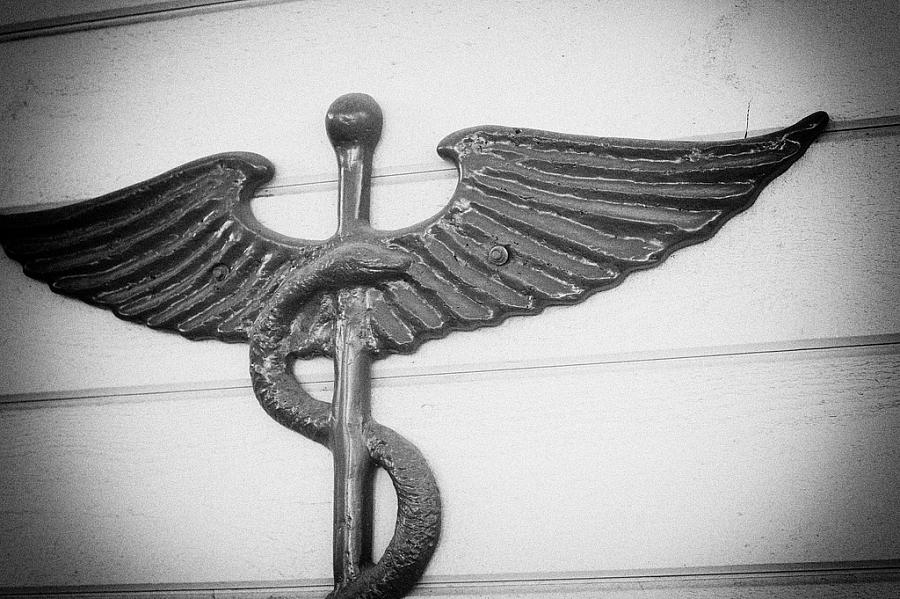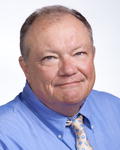Q&A with Dr. William Norcross: Stopping Aging Doctors Before They Harm

Dr. William Norcross knows more about the minds of medical doctors than most people in the world.
The geriatrician and professor of family medicine at the UC San Diego School of Medicine founded the Physician Assessment and Clinical Education (PACE) Program in 1996 to help assess physicians' competence and provide remedial education. Since then, he has become a vocal advocate for regular screening to test for age-related cognitive disorders.
In 2006, he wrote a piece on "the case of the aging physician" that was circulated to every physician in the state. In November 2011, Norcross and PACE organized a conference of physicians, attorneys, medical board members, administrative law judges and other healthcare professionals to openly discuss different ways to address the problem of doctors getting older.
I have interviewed Dr. Norcross in the past and have always found him to be one of the most thoughtful and candid physicians in the field. I reached him at his office in San Diego. The first part of our interview is below. The second part will appear later in the week. It has been edited for space and clarity.
 Q: What is the most common scenario for a doctor to be required to go into the PACE program?
Q: What is the most common scenario for a doctor to be required to go into the PACE program?
A: The most common one is as a result of some sort of disciplinary action or perhaps even the anticipation of a disciplinary action from the Medical Board of California or some other state medical board. We are in San Diego, so the majority of the referrals come from the Medical Board of California. Coming in at a strong second would be referrals from hospitals and medical staff groups directly.
Q: What is the average age for doctors who go into PACE?
A: I believe it's around 62, which is four or five years above what the state average is for doctors. Not terribly old. Not terrible young either. When I started the program, I thought we would see physicians who were very young and maybe hadn't learned enough or were naive in some ways and that we might see some physicians who were very old. But the fact is that most of them turn out to be in late middle age.
Q: Then do you think that age is much of a factor in doctors making mistakes or breaking the rules in some way?
A: We do see several cases a year with a doctor with an age-related health problem, most typically a cognitive problem. Even though the majority of doctors are not disciplined because of the consequences of age, that's still a pretty big factor. I'm fairly certain that there are many physicians with age-related problems flying under the radar.
There was an article that showed if you look at the national prevalence for dementia, like Alzheimer's and look at the statistics for physicians in practice by age, the conclusions would be that right at this moment in time, there must be about 8,000 practicing physicians in the US with full on dementia. Not just forgetfulness or "I don't remember where I put my car keys" but actual dementia. It's out there and the consequences, while not frequent, can be catastrophic.
Q: What does a typical day look like for a doctor in the PACE program?
A: Typically, the program lasts a total of seven days in two phases. They come to San Diego and can stay anywhere they want. Phase I is two days of multi-phase testing and oral clinical exams. These are standardized tests created by the National Board of Medical Examiners, and we watch them perform a history and physical on a mock patient. A person just being himself or herself. Then we perform a complete history and physical on the doctor, looking for illnesses that could interfere with their ability to practice. We don't do breast, pelvic or rectal exams, but we do everything else. The oral clinical exam is performed by a doctor in the doctor's specialty.
We accept doctors of all recognized specialties. If there are no major health or cognitive problems, we bring them back for Phase II. This is five days, usually consecutive, in a residency level site that is in their specialty. If it's a hospitalist it would be with other hospitalists in a hospital. If it's a primary care physician, it would be with primary care physicians in an outpatient setting. They don't have responsibility for patient care, but they observe and are incorporated into the educational activities and ask questions as they go along.
When we created PACE, we thought it can't just be a totally abstract paper and pencil test like a board exam. That has its place in assessing medical knowledge. But we thought we needed a real life clinical situation that was, to some extent, unpredictable so we could learn from the doctor how he or she would react to a situation and come up with a treatment plan. We published an article in Academic Medicine three years ago that described our experience.
Q: How many physicians go through the program in a year?
A: About 100. We have a lot of courses. Prescribing. Anger management. Professional boundaries. If you look at that broader group, we see several hundred physicians every year.
Q: What's the failure rate?
A: First of all, physicians are broken down into four categories upon completion. One is a clear pass where we find nothing wrong. That group is about 25% to 30%. Pass with minor recommendations would be things like telling them to write more complete medical records or to get a few more continuing medical education credits. Then there's pass with major recommendations, which requires more significant changes. And then there's fail. Fail means that after all this, the group considers you unsafe to practice. The bar is that the physician might harm someone in the very near future. Fail is between 10% and 15%. In the paper, which only goes up to 2005, the fail rate was about 8%, but it's more commonly in the 10% to 15% range.
Q: What happens when you fail a doctor?
A: It goes back to the medical board. It's up to the medical board to do what they want. They could ignore our work, but they don't. They recognize and respect it. Pretty much invariably it results in a temporary suspension of license, and that's immediate. Then the doctor has a decision as to whether he wants to fight it, wants to remediate it and do better on a second attempt or he wants to surrender his license. If they choose to remediate it, we do provide guidance, which is free of charge. We counsel them as to what their deficiencies are and how we would recommend that they go about a program of self-study.
But, if they fail, they cannot go through PACE again to be reassessed until at least six months has passed. We feel that if a doctor fails, that is a very significant deficiency and it would take a minimum of six months for them to improve. It would take intensive study like you were a medical student. Three or four hours a day pretty much steadily reading the literature, listening to audio, watching video, going to conferences.
Q: In the categories of pass with major recommendations or fail, is there a skewing toward the older physicians?
A: We haven't looked at that specifically.
Q: That surprises me, given what you've written in the past about the need for older physicians to be assessed periodically.
A: Our population is older than the general population but not terribly much so. My guess is that the breakdown of physicians in those categories would not be dramatically different from the overall breakdown.
Q: Why is that?
A: Two things happen. I am 63, for the record. As physicians get older, we modify what we do for a living so that it's more commensurate with our abilities and our stamina. Everybody knows that medical groups and hospitals shield doctors who are impaired. This is less so with alcohol and drug abuse, but when it's a cognitive decline or some physical consequence of aging, physicians will tend to project their own experience onto the physician who is having problems.
There was an article in the Annals of Internal Medicine where a survey was taken about basic beliefs of physician impairment. And 96% of respondents believed that physicians who were truly impaired should be reported, but 45% responded they had witnessed such an event in their life and failed to report it. There is some strong evidence that we know that it happens but that we don't do anything about it.
All of us are going to age and develop some chronic diseases, and so I think there is sometimes some empathy. A doctor says, "I remember Dr. Bob when he was a young physician and really on top of everything, but now he sometimes falls asleep in the operating room. I'm not happy about that, but there but for the grace of God go I." The Coalition for Physician Enhancement had a meeting recently where people were asked: "What do you do about the aging physician when you know they are not performing at a high level?"
Q: What was the response to that?
A: First of all, as far as I know there are only two hospitals in the United States that have firm policies on this. One is Lucile Packard Children's Hospital at Stanford. They begin screening doctors at age 70, or when there is any suspicion that there might be some cognitive decline. And the University of Virginia Medical Center has instituted a screening policy with respect to age. Other than that, there's no one looking for the problem. I wrote seven years ago that we need to get people interested in this issue. Obviously physicians are going to live longer and they are going to practice longer, so it's something that is going to eventually come to a head. As a member of the California Medical Association, I have been urging the CMA to take a leadership role on this.
Q: I would think the CMA would be very reluctant to take this on given how it usually takes the position of protecting all of its members from increased scrutiny, regardless of their ability.
A: If we don't take this on as a profession, some state legislator is going to adopt this as his or her crusade, like they did in California for the Diversion program. There was criticism of diversion, and instead of fixing it, they obliterated it. And that was unfortunate. It only takes one or two people on a high horse to make huge changes that affect one of the largest physician populations in the country. Somebody is going to wake up and shove a ban on practicing after a certain age, or some other changes, down our throats.
Related Posts:
Licensed for Life: Doctors Can Practice Without Restrictions at Any Age
Antidote: When is a Doctor Too Old to Practice?
Reporting on Aging: Health Reform, Ethnicity and Income In The Mix
Home page photo credit: Alan Levine via Flickr

